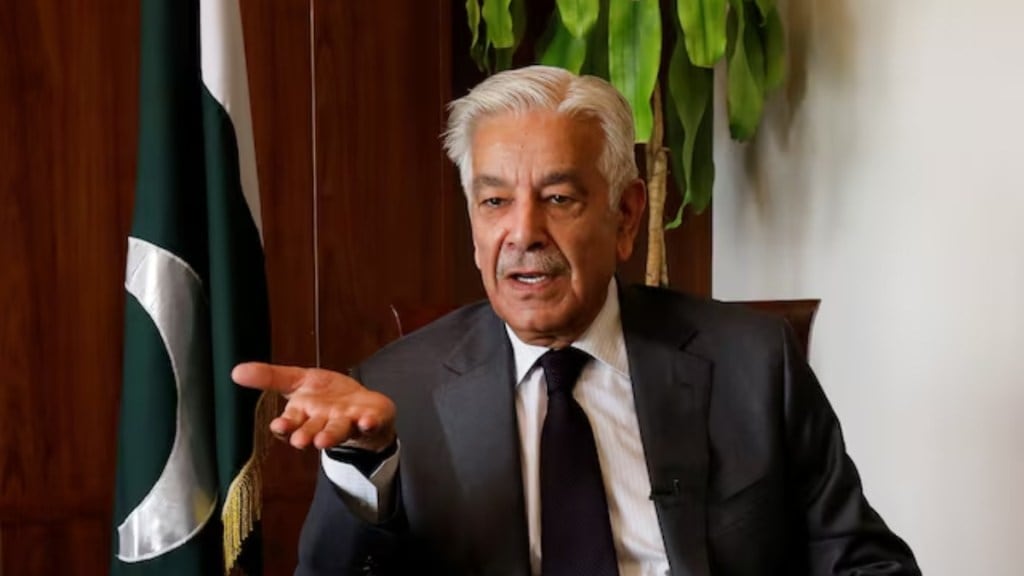Pakistan’s Defence Minister Khawaja Asif has accused Afghanistan’s government of working at India’s behest and warned that any attack on Islamabad would face a response “50 times stronger.”
Speaking on Geo News’ primetime show Aaj Shahzeb Khanzada Ke Saath, Asif sharply criticised Kabul’s leadership, claiming it was following Delhi’s directions.
“The people in Kabul pulling the strings and staging the puppet show are being controlled by Delhi,” he said, according to Dawn. He alleged that India was using Afghanistan to make up for its “defeat on their western border.”
Adding to it Asif noted that, “There should be no doubt that Kabul is responsible for the terrorism in Pakistan. Kabul is a tool for Delhi. If they want to, God forbid, attack Islamabad, we will give a befitting response. A response 50 times stronger”.
Peace talks in Turkey collapse
Asif said recent peace talks between Pakistan and Afghanistan, held in Turkey, failed after several reversals by the Afghan side. “Whenever we got close to an agreement when negotiators reported to Kabul, there was intervention, and the agreement was withdrawn,” he told the channel.
He acknowledged the Afghan delegation’s effort during negotiations but accused Kabul’s leadership of derailing the talks under India’s pressure. “India wants to engage in a low-intensity war with Pakistan. To achieve this, they are using Kabul,” Asif said.
Khwaja Asif’s stern warning to Kabul
Responding to threats from Afghanistan, Asif issued a harsh warning. “If Afghanistan even looks at Islamabad, we will gouge their eyes out,” he said.
Earlier, the minister had warned that if the peace talks failed, it could lead to an all-out war between the two countries.
Officials from both countries had been trying to find a solution to their border and military disputes in Turkey over three days of talks. The discussions began on Saturday and continued through Monday but ended without any final agreement, Dawn reported.
“Most of the points had been mutually agreed between the two sides, but they could not reach a deal on how to verify action against terrorist groups allegedly operating from Afghanistan,” news agency PTI reported, citing sources familiar with the talks.
Both countries had earlier agreed to a ceasefire in Doha on October 19, but the second round of talks which was mediated by Turkey and Qatar, again ended without progress, according to Afghan and Pakistani officials who spoke to Reuters.
Earlier this month, several soldiers, civilians and militants were killed in violent clashes, creating a near war-like situation. However, a temporary peace was restored on October 19 after the Doha talks.

